TECH
 Best Overall & Professional Cameras
Best Overall & Professional CamerasWhat an incredible year in the camera industry! Both Canon and Nikon released their first Full Frame Mirrorless offerings within a short time span, and just as the echo was fading from the response we learned that Panasonic will soon be bringing their first full-frame mirrorless model to the table as well. This marked a clear trend in the industry, amidst a relative slowdown in Micro Four Thirds and APS-C models across the board, and certainly broadened the spectrum of available products in the industry.
And yet, all the chaos and excitement, Fujifilm somewhat quietly released an update to their popular SLR-styled mirrorless camera, the Fuji X-T3, and it turned out to be the model we held in the highest regard for 2018. Not that the new full-frame mirrorless models were not as exciting as they are, but Sony's continued pursuit of excellent full-frame mirrorless cameras such as the A7 Mark III included below. But the X-T3 just seemed to check the most boxes this year across the board, and it marks the first year that Fujifilm has taken home the top honor in our awards, which date back to 2012.
In addition to our Best Overall models, you'll find much more to love across the various categories this year, including Nikon's excellent Z7 and Fujifilm's latest Medium Format offering, the rangefinder-styled GFX-50R. And there was great excitement at the other end of the spectrum as well with Nikon's P1000, a superzoom that, well, zooms to truly epic distances, and that delivers surprisingly good images given the extreme focal length and relatively small onboard sensor.
It's been an exciting year overall in the camera industry, and we're proud to offer our culling of the best of the best from 2018 for you here!
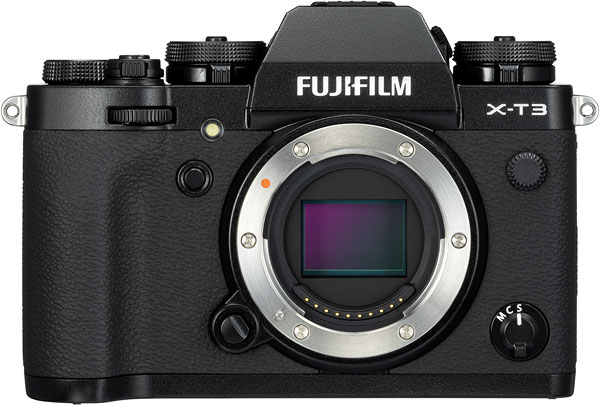
The follow-up X-T2 was significantly more than the C-AF table and proved to be worthy companion in the field, especially for photographing wildlife in motion. It also brought useful preset C-AF algorithms that made it easier to dial in desired settings quickly while out in the field. The body was also beefed-up considerably from the original design, as were many of the buttons and dials. These improvements and many more earned that camera to spot on the Best Overall podium in 2016 as a worthy runner-up to the Olympus E-M1 Mark II and alongside the excellent Nikon D500. (What a year!)
And now, here in 2018, the third time has indeed proven the charm for Fujifilm, the succession of improvements from the Fujifilm engineers and design team has brought the camera line to the very top of our awards: Imaging Resource 2018 Camera of the Year ! Not that it was an easy decision, as there are cameras receiving honors in this top category that most surely belong in the same conversation. But when it was said and done, we became convinced that the Fujifilm X-T3 is indeed the Best Overall Camera released in 2018.
There are many different types of photographers out there with vastly different shooting styles and personal preferences, not to mention different choices in subjects to shoot. For this reason, there are fortunately many choices still available to us even now in this smartphone-encrusted day and age. However, many of us here at Imaging Resource are delighted by the fact that Fujifilm has remained true to its philosophy of providing high-quality imaging performance in a robust shell, while still maintaining its wonderful sense of retro-styled ergonomics and controls, as well a passion for keeping the world of film alive through features like their excellent film simulation presets.
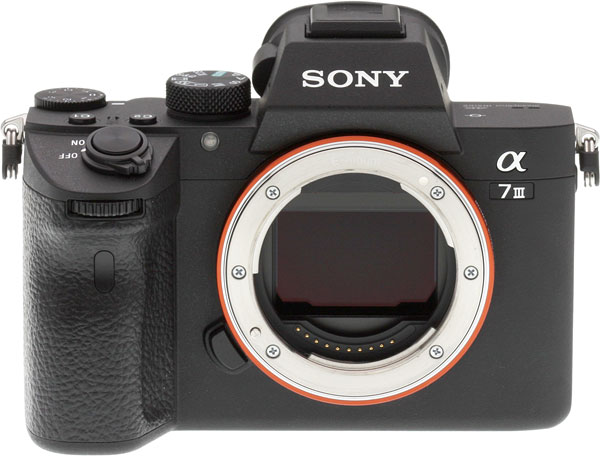
There are few cameras that can capture excellent breadth of color and dynamic range for landscapes, properly follow a moving subject for sports and action, and also work outstandingly in the unpredictable lighting and movement situations to professional wedding photographer encounters. Here, the A7 III delivers across the board.
Its 10fps continuous shooting speed puts it on par with some high-end professional action cameras, and when combined with its equally impressive 693-point hybrid autofocus system makes it one of the top five full-frame cameras ever made for capturing moving subjects. Sony also managed to pack in many high-end video features, such as S-Log, multiple 4K frame rate options, and excellent 120fps Full HD video. Additionally, it's one of the few cameras on the market capable of all that while taking advantage of the entire width of the sensor. With the Sony A7 III, you get great video quality without sacrificing the full-frame look.
Though Sony's menu system is in dire need of an upgrade, the overall usability of the A7 III is not held back too much by those woes. It's a relatively easy system to pick up and understand, and its excellent image quality, battery life, and truly outstanding versatility and range make the Sony A7 III one of the best full-frame cameras you can buy today, and one of the best cameras released in 2018.
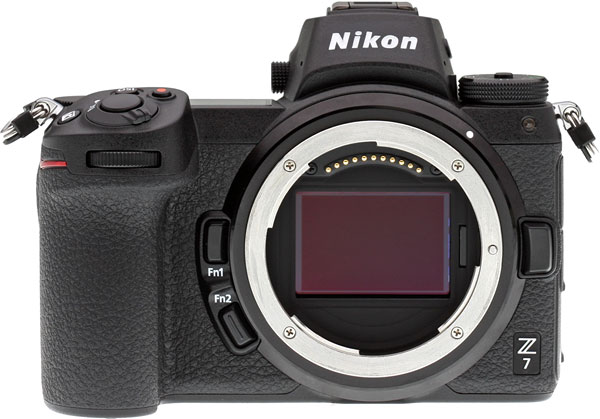
In the field, the Nikon Z6, much like the Z7, offers robust weather-sealed construction, comfortable ergonomics (despite the smaller body design) and consistency to its design that should be familiar to existing Nikon DSLR shooters to use for newcomers). As we've got to expect with Nikon cameras, especially full-frame ones, the image quality out of the Z6 is very impressive. Obviously, it has less resolving power than the Z7, but files still offer plenty of fine detail, as well as excellent dynamic range, color rendition, and high ISO quality. Performance-wise, the Z6 provides speedy autofocus, with both native Z-mount optics as well as many F-mount lenses via an adapter, and in terms of continuous shooting, the Z6 offers up to 12fps with continuous AF, making it an excellent option for most sports and wildlife situations.
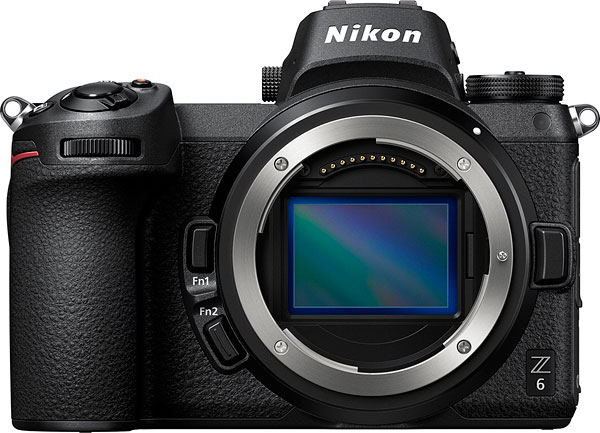
Overall, the Nikon Z6 is a wonderful, well-rounded camera that's useful in a wide variety of shooting situations - an impressive feat for what's essentially the first-generation product. Of course, given the new mount, there are few native Z-mount lenses currently, so the Z6 (and Z7) really feel more suitable for current Nikon DSLR owners for now. In the end, though, we really had trouble finding serious fault with this camera. Image quality is great, video is great, performance is great, and the design is great. The Nikon Z6 was an easy pick as one of the best cameras of 2018.
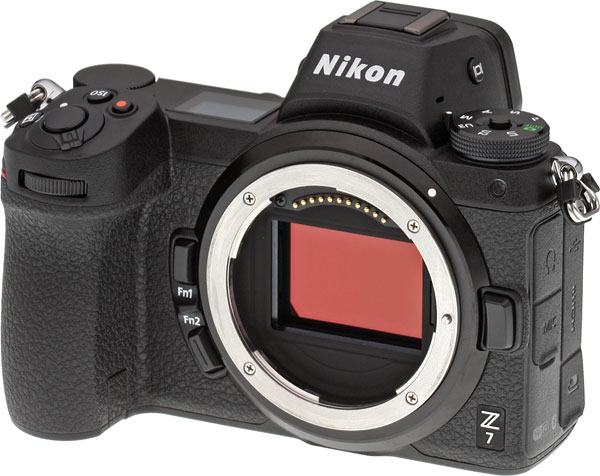
Enter the versatile and well-rounded Nikon Z7, Nikon's first high-megapixel full-frame mirrorless camera. Kicking off the brand-new camera system with a professional camera is a bold choice because after all, while we all enjoy reading about high-end cameras, the vast majority of people do not spend over $ 3,000 on a camera body. Perhaps a bolder choice was releasing a pro-oriented camera with only a single XQD card slot. We are sure that some professionals would hesitate to buy the Z7 for this simple fact, but for those who can look past this omission, they'll find a full-frame camera capable of producing very high-quality photos and videos in a wide array of situations. The robustly weather-sealed 45.7-megapixel camera can shoot up to 9 frames per second, it has 493 autofocus points and records 4K UHD video at up to 30 frames per second. The Z7 is not only impressive on paper, but it also excelled in our lab and in the field.
The cameras continue to get smaller thanks to mirrorless technology, their capabilities are ever expanding. The Z7 is no exception. In an industry where professional photographers have many different demands, the Nikon Z7 is well suited to overcome all challenges and empower photographers in special ways. Rising above the steep competition, the Nikon Z7 is our choice as the Best Professional Camera of 2018.
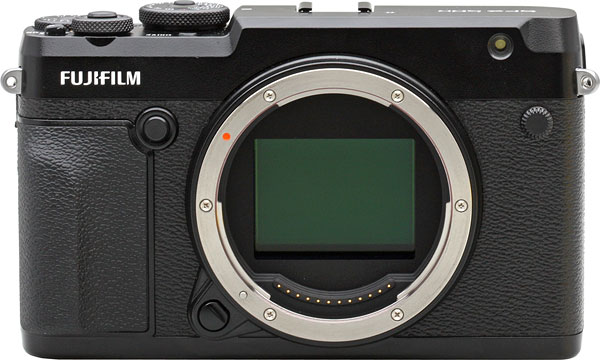
For many professionals, image quality is of utmost concern. This is where the GFX 50R excels thanks to its 51.4-megapixel medium-format CMOS sensor. The sharpness and resolving power of the GFX 50R is second to none for its price point and quite frankly, it performs well against significantly more expensive medium-format camera systems. While the GFX 50R may not provide the same speed and focusing performance as a full-frame camera, it delivers a very enjoyable overall shooting experience and is well-suited to many shooting scenarios. In the studio and in the field, the Fujifilm GFX 50R is a highly capable professional medium-format camera in its most accessible form. This is why it has earned an award of Distinction in this year's Best Professional category. Two years ago, Ricoh scored the Camera of Distinction for its first-ever full-frame digital SLR, the Pentax K-1. Fast-forward to the present day, and the closely-related followup Pentax K-1 II has just managed the very same feat. We find that two of them are apt because these cameras are more than just siblings: For many months after the K-1 II's launch, it was actually possible to have your K-1 upgraded to the new model's specification for a fairly modest fee. To our knowledge, that's completely unique in the history of the DSLR market. We've seen the promise of upgradeable cameras before, but we've never seen a company actually make it happen, other than Ricoh.
So what does the new model bring to the table, beyond what was already on offer in the ruggedly-built and extremely feature-rich K-1? Well, the K-1 II sports a brand-new accelerator unit that has allowed up to two-stop improvement in noise levels. It also brings with it an upgraded Pixel Shift Resolution System II that extends the clever resolution-boosting multi-shot mode of the earlier model to allow for handheld shooting, another industry first.
These two upgrades alone were not enough to bring home the overall title for Ricoh in our professional camera category, obviously. But they have helped to make an already-impressive camera measurably better than before, and have reset the bar for what Pentaxians can expect from a full-frame DSLR. That's great news for K-mount shooters and those considering making the leap to Pentax from another brand alike! Source:IR Staff/mundophone

No comments:
Post a Comment